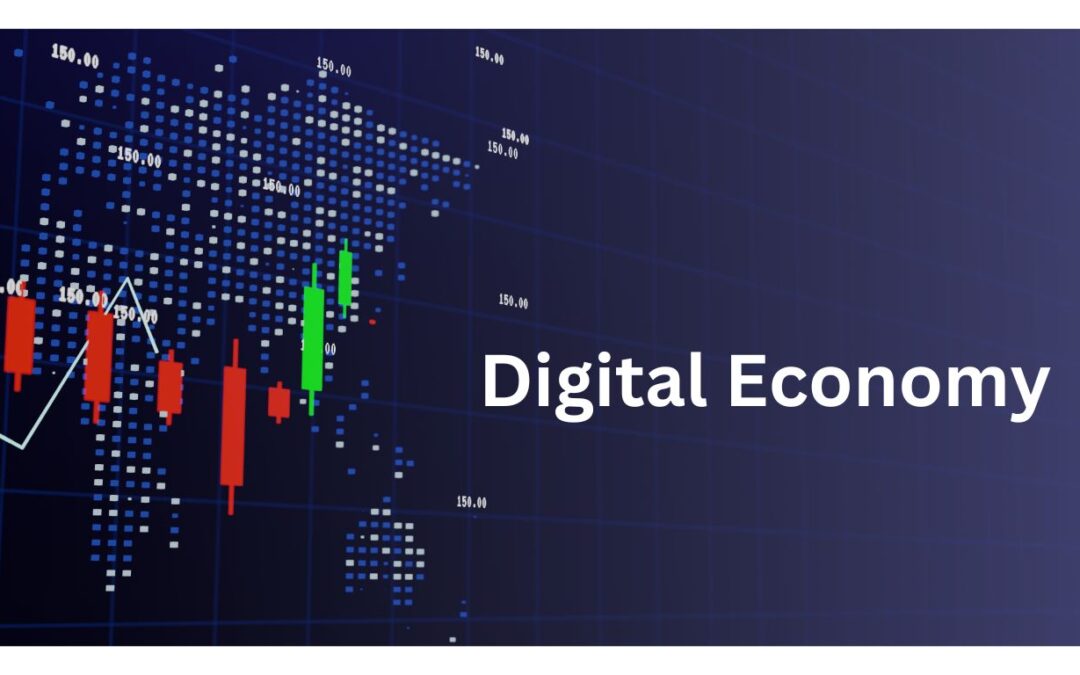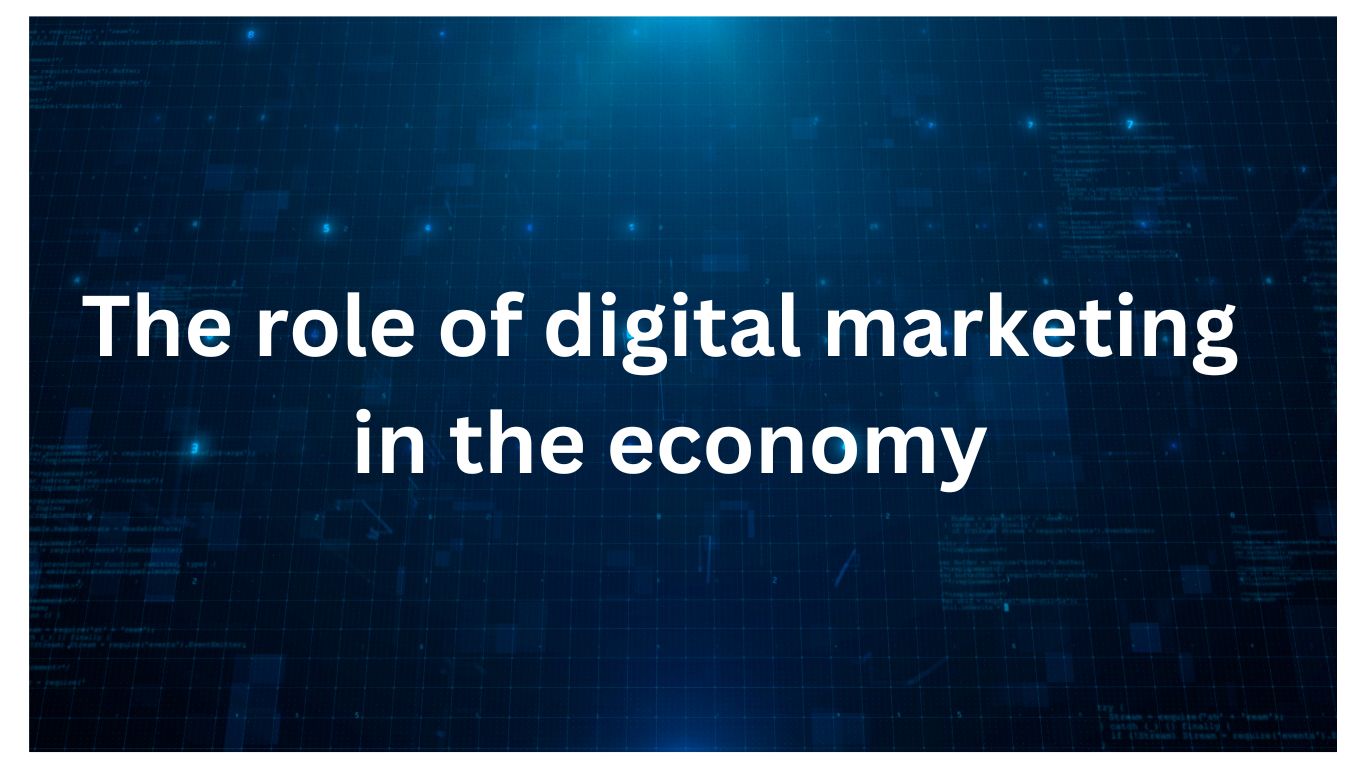what is the role of digital marketing in the economy
Digital marketing has transformed the way businesses operate, affecting not only the way companies reach and interact with consumers but also the overall economy. As digital marketing continues to evolve, its influence on economic structures becomes increasingly significant. This article explores the multifaceted role of digital marketing in the economy, examining how it drives growth, fosters innovation, and reshapes industries.
The Evolution of Digital Marketing
Digital marketing encompasses all marketing efforts that use an electronic device or the internet. Businesses leverage digital channels such as search engines, social media, email, and websites to connect with current and prospective customers. The advent of digital marketing can be traced back to the late 1990s and early 2000s, a period marked by the proliferation of the internet and advancements in technology. Over the past two decades, digital marketing has evolved from basic online advertisements and email marketing campaigns to a complex ecosystem of strategies, tools, and platforms designed to engage consumers in personalized and interactive ways.
Economic Impact of Digital Marketing
Business Growth and Market Expansion
Digital marketing has enabled businesses, both large and small, to reach a global audience at a fraction of the cost of traditional marketing methods. This global reach has opened up new markets, allowing companies to expand their operations and increase their revenue streams. Small and medium-sized enterprises (SMEs) particularly benefit from digital marketing, as it provides them with the tools to compete with larger corporations on a more level playing field. By leveraging search engine optimization (SEO), social media marketing, and pay-per-click (PPC) advertising, SMEs can effectively target niche markets and drive growth.
Job Creation and Employment Opportunities
The rise of digital marketing has led to the creation of numerous job opportunities across various sectors. From content creators and social media managers to data analysts and digital strategists, the demand for skilled professionals in the digital marketing field continues to grow. This surge in demand has spurred educational institutions to offer specialized courses and certifications, further contributing to the development of a skilled workforce. Moreover, the gig economy has flourished as freelancers and independent contractors find ample opportunities to offer their digital marketing services to businesses worldwide.
Innovation and Technological Advancements
Digital marketing has been a catalyst for innovation and technological advancements. The need to deliver personalized and engaging content has led to the development of sophisticated marketing tools and platforms. Artificial intelligence (AI) and machine learning algorithms are now integral to digital marketing, enabling businesses to analyze consumer behavior, predict trends, and automate marketing processes. Additionally, advancements in data analytics and customer relationship management (CRM) systems have empowered marketers to make data-driven decisions, enhancing the efficiency and effectiveness of their campaigns.
Reshaping Industries
Retail and E-commerce
The retail and e-commerce sectors have been profoundly impacted by digital marketing. Online shopping has become a mainstream activity, driven by the convenience and accessibility of e-commerce platforms. Digital marketing strategies such as targeted advertising, influencer partnerships, and personalized email campaigns have played a crucial role in attracting and retaining customers. The rise of mobile commerce (m-commerce) and the integration of augmented reality (AR) in online shopping experiences are further transforming the retail landscape, offering consumers immersive and interactive ways to shop.
Media and Entertainment
The media and entertainment industry has also undergone significant changes due to digital marketing. Streaming services, social media platforms, and online content creators have disrupted traditional media channels, providing consumers with on-demand access to a vast array of content. Digital marketing techniques such as content marketing, video marketing, and social media advertising are essential for media companies to promote their offerings and engage with their audiences. The shift towards digital consumption has also led to new revenue models, such as subscription services and ad-supported content.
Travel and Hospitality
The travel and hospitality industry relies heavily on digital marketing to attract customers and enhance their experiences. Online travel agencies (OTAs), review sites, and social media platforms play a pivotal role in influencing consumer decisions. Digital marketing strategies such as search engine marketing (SEM), content marketing, and social media engagement are crucial for businesses in this sector to build brand awareness and drive bookings. Furthermore, the use of AI-powered chatbots and personalized recommendations enhances customer service and satisfaction.
Consumer Behavior and Digital Marketing
Changing Consumer Expectations
Digital marketing has significantly influenced consumer behavior and expectations. Consumers now expect personalized and seamless experiences across all touchpoints. They seek relevant content, tailored recommendations, and timely responses to their inquiries. Businesses that leverage data analytics and AI to deliver personalized experiences are more likely to build customer loyalty and drive repeat business. Additionally, the rise of social media has empowered consumers to voice their opinions and share their experiences, influencing the purchasing decisions of others.
The Role of Influencers
Influencer marketing has emerged as a powerful tool in the digital marketing arsenal. Influencers, individuals with a substantial following on social media platforms, have the ability to sway the opinions and behaviors of their audiences. Brands collaborate with influencers to promote their products and services, leveraging their credibility and reach. This form of marketing has proven to be highly effective, particularly among younger demographics who value authenticity and peer recommendations. The impact of influencers on consumer behavior underscores the importance of social media in modern marketing strategies.
Challenges and Future Trends
Data Privacy and Security
As digital marketing relies heavily on data collection and analysis, concerns about data privacy and security have come to the forefront. Consumers are becoming increasingly aware of their data rights and expect businesses to handle their information responsibly. The implementation of regulations such as the General Data Protection Regulation (GDPR) in the European Union and the California Consumer Privacy Act (CCPA) in the United States highlights the need for businesses to prioritize data protection. Moving forward, marketers must balance the need for data-driven insights with the imperative to safeguard consumer privacy.
Emerging Technologies
Emerging technologies such as AI, virtual reality (VR), and blockchain are poised to shape the future of digital marketing. AI and machine learning will continue to enhance personalization and predictive analytics, enabling marketers to deliver more relevant and timely content. VR and AR will offer immersive marketing experiences, allowing consumers to interact with products and brands in novel ways. Blockchain technology has the potential to enhance transparency and security in digital advertising, addressing issues such as ad fraud and ensuring the authenticity of transactions.
Sustainability and Ethical Marketing
Sustainability and ethical considerations are becoming increasingly important to consumers. Businesses that demonstrate a commitment to environmental and social responsibility are more likely to resonate with conscious consumers. Digital marketing can play a crucial role in promoting sustainable practices and highlighting a brand’s ethical values. By leveraging storytelling and transparent communication, businesses can build trust and foster long-term relationships with their customers.
In conculsion, Digital marketing is a driving force in the modern economy, influencing business growth, innovation, and consumer behavior. Its impact spans across various industries, reshaping the way companies operate and interact with their audiences. As technology continues to evolve, digital marketing will undoubtedly face new challenges and opportunities. Businesses that adapt to these changes, prioritize data privacy, and embrace emerging technologies will be well-positioned to thrive in the digital age. The role of digital marketing in the economy is not just about driving sales and revenue; it is about creating meaningful connections, fostering innovation, and contributing to the overall economic development.


